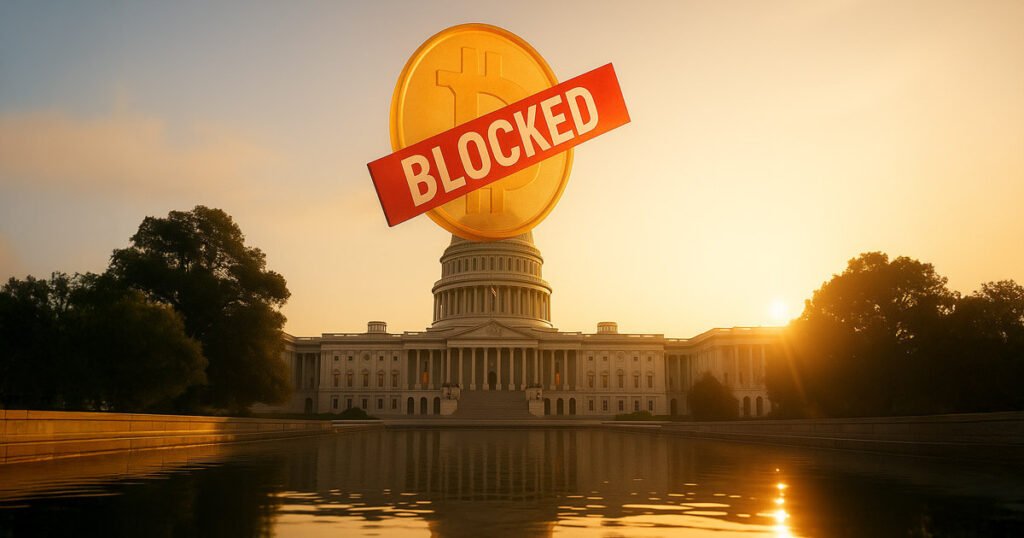New Legislation Aims to Curb Public Officials’ Financial Gains from Digital Assets
On June 23, a coalition of US lawmakers, spearheaded by Senator Adam Schiff, introduced a pivotal piece of legislation known as the Curbing Officials’ Income and Nondisclosure Act, or the COIN Act. This bill is designed to prevent public officials, including the president, from exploiting digital assets for personal financial gain. With concerns regarding the intersection of government ethics and cryptocurrency on the rise, the COIN Act aims to establish stricter standards and enhance accountability amongst elected officials.
The impetus for the COIN Act stems from alarming revelations surrounding the financial dealings of high-ranking officials. Recently, Senator Schiff highlighted a striking case where former President Donald Trump reportedly earned over $57 million in 2024 from a cryptocurrency venture with World Liberty Financial. This revelation raises ethical questions regarding the use of public office for personal enrichment. Senator Schiff underscored the urgent need for this legislation, stating, “We need far greater scrutiny of the president’s financial dealings, and to stop him and any other politician from profiting off of such schemes.”
Key Provisions of the COIN Act
The COIN Act comprises several key provisions aimed at tightening ethical regulations concerning digital assets amongst government officials. One of the primary proposals is the prohibition against issuing, promoting, or endorsing any form of digital asset by key figures in government—this includes a wide range of assets like memecoins, NFTs, and stablecoins. The restrictions apply universally to presidents, vice presidents, members of Congress, executive branch employees, and their immediate family members. Notably, these measures will be in effect for a period beginning 180 days before an official assumes office and lasting until two years after they leave.
Mandatory disclosures are another critical component of the COIN Act. Public officials will be required to include all digital asset holdings and transactions in their annual financial disclosures and real-time transaction reports. This transparency aims to reduce the risks of conflicts of interest and ensure that officials are held accountable for their financial activities.
Conflict of Interest Safeguards
A significant aspect of the COIN Act pertains to how it addresses conflicts of interest. The legislation stipulates that officials must abstain from decisions in which they could have a financial stake or personal benefit, thereby preventing any potential misuse of power. Furthermore, the bill mandates that issuers of stablecoins submit quarterly reports to confirm that no government officials are gaining from their tokens. This requirement is essential for regulatory approval and adds an additional layer of oversight to government checks and balances.
Support and Backing for the COIN Act
The COIN Act has garnered significant bipartisan support with co-sponsorship from several prominent House and Senate Democrats, including Kirsten Gillibrand, Richard Blumenthal, and Lisa Blunt Rochester. The bill has also received endorsements from various watchdog organizations such as Citizens for Responsibility and Ethics in Washington (CREW), Public Citizen, and the Project on Government Oversight. The backing from these groups underscores the call for enhanced accountability and the alignment of government practices with public ethical standards.
Future Implications and Ethical Oversight
In addition to its immediate restrictions, the COIN Act also instructs the Government Accountability Office to conduct a comprehensive review of existing ethics laws related to digital assets within one year. This review will provide necessary guidance for updating policies aimed at curbing unethical financial behaviors among public officials. By seeking to define and refine existing regulations, the bill anticipates changes in the rapidly evolving landscape of digital finances, ensuring that government officials remain accountable in an era of high-tech investment opportunities.
Conclusion
In summary, the introduction of the COIN Act marks a crucial step towards enhancing the ethical standards of public officials, particularly regarding their engagement with digital assets. As cryptocurrency and other digital financial instruments continue to grow in popularity and complexity, the potential for misuse within public office becomes a pressing issue that policymakers cannot ignore. Through stringent restrictions, mandatory disclosures, and robust conflict-of-interest safeguards, the COIN Act aims to protect the integrity of public service and reassure the public that their leaders are prioritizing ethical governance over personal profit.


